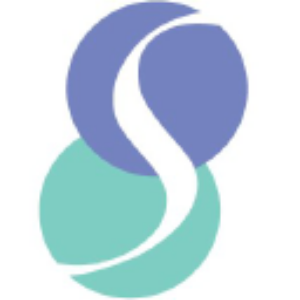Sonnet BioTherapeutics Announces Topline Safety Data Following Successful Completion of SON-1010 Monotherapy Dose Escalation in Phase 1 SB101 Trial
Rhea-AI Summary
Sonnet BioTherapeutics (NASDAQ:SONN) has announced successful topline safety data from its Phase 1 SB101 trial of SON-1010 in advanced solid tumor patients. The maximum tolerated dose was established at 1200 ng/kg, with no dose-limiting toxicity or cytokine release syndrome observed.
Key findings include stable disease in 48% (10 of 21) of evaluable monotherapy patients at four months post-treatment initiation, including one patient at the maximum dose achieving a partial response with a 45% tumor reduction. Of 24 total patients, 17 (71%) showed stable disease at first follow-up. The safety profile has been favorable, with mostly mild adverse events reported.
The company is currently seeking partnership opportunities for later-stage development while continuing patient monitoring for long-term safety and tumor responses.
Positive
- Maximum tolerated dose established at 1200 ng/kg without dose-limiting toxicity
- 48% of evaluable patients showed stable disease at four months
- One patient achieved partial response with 45% tumor reduction
- 71% of patients (17 of 24) showed stable disease at first follow-up
- Favorable safety profile with only mild adverse events reported
Negative
- Company seeking partnerships for further development, indicating potential funding needs
News Market Reaction
On the day this news was published, SONN declined 5.71%, reflecting a notable negative market reaction.
Data tracked by StockTitan Argus on the day of publication.
The maximum tolerated dose (MTD) of SON-1010 was set at 1200 ng/kg, without dose-limiting toxicity or evidence of cytokine release syndrome at any dose level
Stable disease (SD) at four months post-initiation of dosing was seen in 10 of 21 (
Together, these data suggest clinical benefit when SON-1010 is administered as a monotherapy
Sonnet management discusses what this data means in a Virtual Investor “What This Means” segment; access here
PRINCETON, NJ, Dec. 09, 2024 (GLOBE NEWSWIRE) -- Sonnet BioTherapeutics Holdings, Inc. (NASDAQ:SONN) (the "Company" or "Sonnet"), a clinical-stage company developing targeted immunotherapeutic drugs, announced today that the results of SON-1010 at the highest dose have been formally evaluated by the Safety Review Committee in the Phase 1 SB101 clinical trial of SON-1010 (IL12-FHAB) in adult patients with advanced solid tumors. SB101 is the Company’s open-label, adaptive-design dose-escalation study to assess the safety, tolerability, pharmacokinetics (PK), and pharmacodynamics (PD) of SON-1010 administered to patients with advanced solid tumors. The study has enrolled 24 subjects to date. Primary outcome measures for the study were to evaluate the safety and tolerability of SON-1010 and establish the MTD. Additionally, the Company announced the release of a “What This Means” segment to discuss the data which is now available here.
SON-1010 is the Company’s proprietary version of recombinant human interleukin-12 (rhIL-12), configured using genetic fusion to Sonnet's Fully Human Albumin Binding (FHAB®) platform, which extends the half-life and bioactivity of the IL-12 component due to binding native albumin in the serum and also targets the tumor microenvironment (TME) by strong binding to gp60 and Secreted Protein Acidic and Rich in Cysteine (SPARC).
“We are encouraged by this topline safety data generated to date in our Phase 1 study. Given the history of safety concerns with rhIL-12 in its first human trials over 25 years ago, it is exciting to see higher doses of SON-1010 demonstrating minimal toxicity, which is likely due to its unique biodistribution and albumin binding profile, with delivery to and retention in the tumor microenvironment,” said Richard Kenney, M.D., Sonnet's Chief Medical Officer. “We may finally be able to realize the promising antitumor effect that has been associated with this cytokine in preclinical models for decades. The IFNγ response, which is considered to be important for anti-tumor control, has been robust but controlled with a much longer return to baseline. While the clinical benefit we have been seeing during dose escalation has been reassuring, the PR at the highest dose is particularly important, as this suggests that there may be a synergistic effect in combination with checkpoint inhibitors and/or chemotherapy.”
All enrolled patients have had advanced solid tumors. The final 1200 ng/kg dose-escalation cohort was increased in size to 6 patients to enhance the assessment of PK and PD at the MTD. The SB101 trial employed a ‘desensitizing’ first dose of 300 ng/kg to take advantage of the known tachyphylaxis with rhIL-12, with the intention of minimizing toxicity and allowing for higher maintenance doses. No dose-limiting toxicities or related serious adverse events (SAE) have occurred to date. The safety and toxicity profile that has developed is typical for a Phase 1 oncology trial, with the majority of adverse events (AEs) being reported as mild. All AEs seen to date have been transient, with no evidence of cytokine release syndrome. Of the 24 patients dosed to date, 17 (
“This topline safety data release on our lead program is a significant milestone for Sonnet’s clinical development. We have now successfully completed dose escalation in our first trial with SON-1010 and are pleased to see a partial response in one patient at the highest dose, in addition to clinical benefit in almost half of the evaluable patients,” said Pankaj Mohan, Ph.D., Sonnet Founder and Chief Executive Officer. “Safety of this extended PK version of IL-12 has been within expected levels and the comparison with dosing in healthy volunteers provided strong evidence of tumor targeting in humans. We have used this trial to establish the MTD and will continue to follow the patients currently being treated to assess longer-term safety and tumor responses. Sonnet is currently seeking partnership opportunities to help support later stage development of SON-1010.”
For more information about the Phase 1 SB101 trial in adult patients with advanced solid tumors visit www.clinicaltrials.com and reference identifier NCT05352750.
SON-1010 is also being evaluated in a Phase 1b/2a dose-escalation and proof-of-concept study (SB221) in combination with SON-1010 and atezolizumab (in collaboration with Genentech, a member of the Roche Group), which is focused on platinum-resistant ovarian cancer (PROC) (NCT05756907). Enrollment remains ongoing and an update on safety at the MTD in that trial is expected in Q1 2025.
About SON-1010
SON-1010 is a candidate immunotherapeutic recombinant drug that links unmodified single-chain human IL-12 with the albumin-binding domain of the single-chain antibody fragment A10m3. This was selected to bind albumin both at normal pH, as well as at the acidic pH typically found in the TME. The FHAB technology targets tumor and lymphatic tissue, providing a mechanism for dose sparing and an opportunity to improve the safety and efficacy profile of not only IL-12, but a variety of potent immunomodulators that can be linked using the platform. Interleukin-12 can orchestrate a robust immune response to many cancers and pathogens. Given the types of proteins induced in the TME, such as the Secreted Protein and Rich in Cysteine (SPARC) and glycoprotein 60 (GP60), several types of cancer such as non-small cell lung cancer, melanoma, head and neck cancer, sarcoma, and some gynecological cancers are particularly relevant for this approach. SON-1010 is designed to deliver IL-12 to local tumor tissue, turning ‘cold' tumors ‘hot' by stimulating IFNγ, which activates innate and adaptive immune cell responses and increases the production of Programed Death Ligand 1 (PD-L1) on tumor cells.
About the Phase 1 SB101 Trial
This first-in-human study is primarily designed to evaluate the safety of multiple ascending doses of SON-1010 in cancer patients and is being conducted at several sites across the United States. While the optimal dose is unknown at this stage, the potential to target tumors, the extended PK mechanism, and our preclinical data suggest the therapeutic dose may be lower compared to native human IL-12. The study, utilizing a standard 3+3 oncology design in at least five cohorts, should establish the MTD using subcutaneous injections of SON-1010 every 3 to 4 weeks. The primary endpoint explores the safety and tolerability of SON-1010, with key secondary endpoints intended to measure PK, PD, immunogenicity, and anti-tumor activity. This study will form the basis for potential combinations with other types of immunotherapies and the future development of bispecific candidates using the FHAB platform.
About Sonnet BioTherapeutics Holdings, Inc.
Sonnet is an oncology-focused biotechnology company with a proprietary platform for developing targeted biologic drugs with single or bifunctional action. Known as FHAB (Fully Human Albumin-Binding), the technology utilizes a fully human single chain antibody fragment (scFv) that binds to and "hitch-hikes" on human serum albumin (HSA) for transport to target tissues. Sonnet's FHAB was designed to specifically target tumor and lymphatic tissue, with an improved therapeutic window for optimizing the safety and efficacy of immune modulating biologic drugs. FHAB platform is the foundation of a modular, plug-and-play construct for potentiating a range of large molecule therapeutic classes, including cytokines, peptides, antibodies and vaccines.
Sonnet’s lead program, SON-1010, or IL-12-FHAB, is in development for the treatment of solid tumors and ovarian cancer. SON-1010 is being evaluated in an ongoing Phase 1/2a study through a Master Clinical Trial and Supply Agreement, along with ancillary Quality and Safety Agreements, with Roche in combination with atezolizumab (Tecentriq®) for the treatment of Platinum-Resistant Ovarian Cancer (PROC). The Company is also evaluating its second program, SON-1210, an IL12-FHAB-IL15 for solid tumors, in collaboration with the Sarcoma Oncology Center to commence an investigator-initiated and funded Phase 1/2a study for the treatment of pancreatic cancer.
The Company’s SON-080 program is a low dose of rhIL-6 in development for Chemotherapy-Induced Peripheral Neuropathy (CIPN) and Diabetic Peripheral Neuropathy (DPN). SON-080 demonstrated encouraging results in a Phase 1b/2a clinical trial, being well tolerated with no evidence of a pro-inflammatory cytokine response. In October 2024, Sonnet announced an India license agreement with Alkem Laboratories, Inc. who will assume responsibility for advancing development of the SON-080 program into a Phase 2 study in DPN.
Forward-Looking Statements
This press release contains certain forward-looking statements within the meaning of Section 27A of the Securities Act of 1933 and Section 21E of the Securities Exchange Act of 1934 and Private Securities Litigation Reform Act, as amended, including those relating to the outcome of the Company’s clinical trials, the Company's cash runway, the Company's product development, clinical and regulatory timelines, market opportunity, competitive position, possible or assumed future results of operations, business strategies, potential growth opportunities and other statements that are predictive in nature. These forward-looking statements are based on current expectations, estimates, forecasts and projections about the industry and markets in which we operate and management's current beliefs and assumptions.
These statements may be identified by the use of forward-looking expressions, including, but not limited to, "expect," "anticipate," "intend," "plan," "believe," "estimate," "potential," "predict," "project," "should," "would" and similar expressions and the negatives of those terms. These statements relate to future events or our financial performance and involve known and unknown risks, uncertainties, and other factors which may cause actual results, performance or achievements to be materially different from any future results, performance or achievements expressed or implied by the forward-looking statements. Such factors include those set forth in the Company's filings with the Securities and Exchange Commission. Prospective investors are cautioned not to place undue reliance on such forward-looking statements, which speak only as of the date of this press release. The Company undertakes no obligation to publicly update any forward-looking statement, whether as a result of new information, future events, or otherwise.
Investor Relations Contact:
JTC Team, LLC
Jenene Thomas
908-824-0775
SONN@jtcir.com







